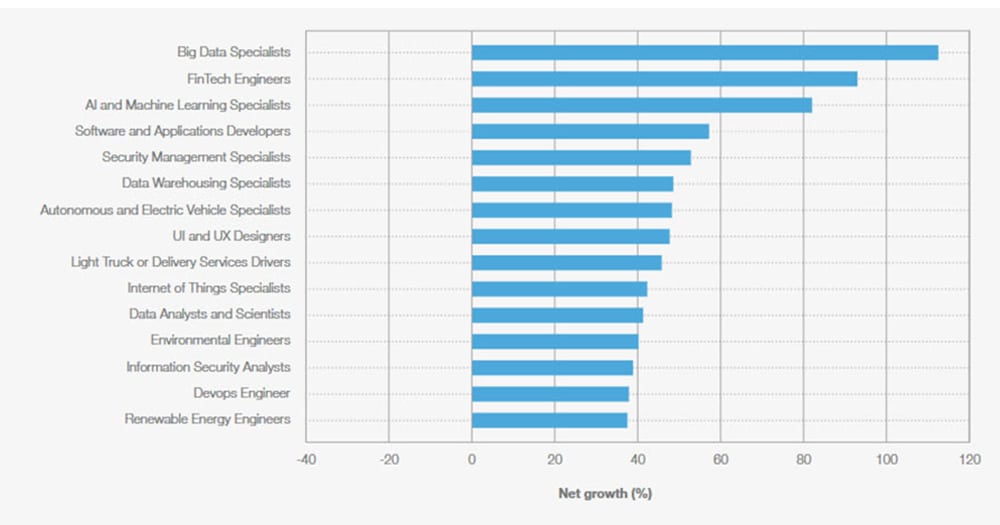Today’s fast-moving world demands new skills. Degrees in Operations Research (OR) and Industrial and Systems Engineering (ISE) give students those skills.
The Future of Jobs Report 2025 by the World Economic Forum highlights what employers want. They value analytical thinking, problem-solving and the ability to work across systems. OR and ISE programs teach those exact skills.
The report lists in-demand careers such as data analysts, AI specialists, automation professionals and big data experts. OR and ISE students prepare for these roles with hands-on, technical coursework.
Maria Mayorga, director of the OR program, said the curriculum adapts quickly. “The OR program allows great flexibility by allowing elective courses to come from any STEM discipline,” she said. “As such, students can take courses as they become available such as neural networks from the computer science department.”
Faculty also design special topics courses. Recently, students studied Optimization for Machine Learning and High Dimensional Data Analytics. This fall, they can take Applied Optimization for Energy and Power Systems or Risk, Resilience and Sustainability.
Julie Swann, head of the ISE department, explained how the ISE curriculum keeps up. “The ISE department continues to adapt its curriculum all the time so that our students have specific skills and are able to continue lifelong learning,” she said.
She added, “We updated our programming requirements to focus on Python, added courses on AI, data analytics and sustainability and created a Data Science Certificate for Engineers.”
Swann emphasized critical thinking as well. “It is not just the content of the courses, but the ability to perform problem solving and use critical thinking,” she said.
Meeting the Demands of a Transforming Economy
The job market is shifting. By 2030, experts predict 170 million new jobs and 92 million losses. This results in a net gain of 78 million.
Technology drives this change. Careers in AI, big data, cybersecurity and green energy are growing fast.
Industries like manufacturing, finance, logistics and healthcare rely more on digital systems. These sectors need engineers who can design smart systems and lead with data. OR and ISE graduates are ready to fill those roles.

Mayorga said students gain real-world experience early. “Students can participate in research projects through independent studies but they can also do internships during the summers,” she said.
Many students now intern in data science across fields such as defense and healthcare.
Swann said ISE students gain hands-on practice in other ways too. “Many students choose to do a high-impact experience like an internship,” she said. “ISE offers courses related to automation that have physical labs for hands-on learning.”
She continued, “Students in logistics optimization and sustainability study real-world cases. In healthcare, our two-course sequence includes projects with nonprofits and health organizations.”
According to Swann, “ISE students in healthcare are helping those systems become more efficient and effective, even before they graduate.”
Future-Proofing Skills for the Decade Ahead
As AI, automation and sustainability grow, engineers must lead change — not just follow it.
OR and ISE programs give students the tools to do both. Mayorga said, “The core OR principles such as systems thinking, modeling and analytics will continue to be a core strength of our graduates.”
She added, “As industries evolve and continue to integrate AI, they will need to redesign the workflow not just implement new IT. Our alumni are well positioned to transform workflows and successfully manage change.”
The Future of Jobs Report 2025 supports this. While some jobs will disappear, AI will also create many new ones. Workers who understand how to connect human and machine systems will succeed.
Swann said ISE graduates bring flexibility to any career. “One of the beautiful things about the ISE discipline is the flexibility it provides graduates for their career,” she said.
She explained, “We have alumni who work in supply chains, healthcare, manufacturing, optimization, analytics, sustainability, consulting, automation and more.”
Swann added, “Our graduates know how to examine systems, then improve processes to get better results. That part is not changing.”
Looking ahead, she sees key growth areas. “I anticipate a greater focus on ISE professionals in data analytics, change management with AI and ML, sustainability and resilient supply chains,” she said.
“The people-focus of ISE students and graduates helps throughout the varied careers that result from an ISE degree.”
Shaping the Future, Not Just Preparing for It
Some students may feel unsure about their future careers. That’s normal. However, OR and ISE programs build both confidence and capability.
These programs do more than teach technical skills. They train students to lead and think critically.
Swann also pointed to the real value behind the degree. “The UNC system conducted a Return-on-Investment analysis of over 600 undergraduate programs and found that degrees in industrial engineering had the 7th highest ROI out of the 600 programs,” she said.
OR and ISE graduates will help create smarter, stronger and more connected systems. They’re not just preparing for the future — they’re designing it.

